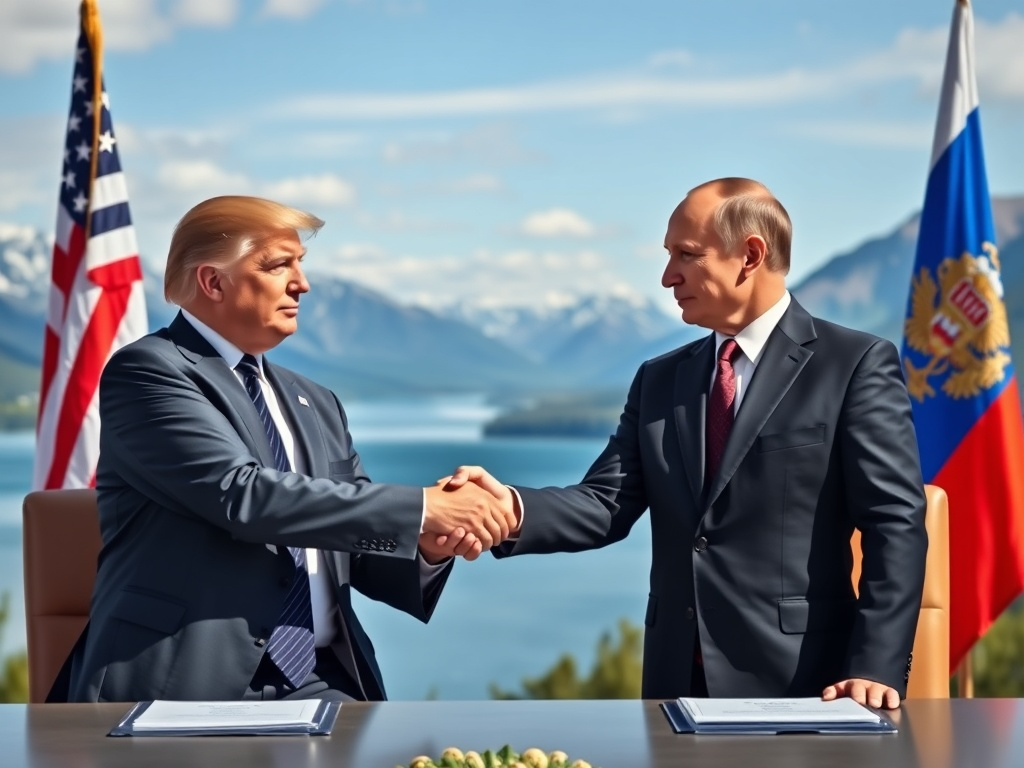U.S. President Donald Trump and his Russian counterpart Vladimir Putin concluded their meeting in Alaska, which lasted about two and a half hours, with an announcement of tangible progress toward ending the ongoing conflict between Moscow and Kyiv. Trump clarified in an interview with Fox News that the talks achieved significant results, indicating that the two sides are 'very close' to formulating a framework to end the war, but he emphasized that any final agreement requires Ukraine's approval.
For his part, Putin revealed that the meeting resulted in an unannounced agreement and invited Trump to hold the next round of talks in Moscow. Informed sources indicated that the initial understanding might include proposals for land exchanges, in addition to the United States providing security guarantees to Kyiv. According to leaks, Moscow might demand Ukraine's recognition of the reality of Russian control over certain areas of Donbas in exchange for halting attacks on other fronts such as Kharkiv.
Trump confirmed that he would consult later with Ukrainian President Volodymyr Zelensky and NATO leaders about this initiative, but he acknowledged that there are significant obstacles, especially since the Ukrainian constitution explicitly prohibits any concession of territory, and Zelensky's government has repeatedly announced its rejection of this option.
The meeting led to a calming of Trump's tone, which had included threats of 'severe consequences' for Russia, as he indicated after the talks that there was no intention to impose additional sanctions at this time. Putin also spoke about the prospects of American-Russian cooperation in areas such as trade, energy, Arctic development, and space, considering that dialogue opens a new chapter in bilateral relations.
Nevertheless, these developments have raised concerns in European capitals, where Germany and France warned against any bilateral understandings between Washington and Moscow that could marginalize the role of the European Union, calling for Europe to be included in the upcoming negotiations.
Analysts believe that the future of the crisis will largely depend on the position of Zelensky and his government: if Kyiv rejects settlements related to borders, fighting may continue; however, if they accept them, they may face an internal political crisis that threatens their stability. In this context, preparations are being made for the possibility of a direct meeting between Putin and Zelensky with U.S. mediation, although the date has not yet been set.
According to experts, the results of the Alaska summit currently seem closer to demonstrating a diplomatic breakthrough between Moscow and Washington, rather than a real solution to the Ukrainian crisis. The final assessment will remain contingent on the next steps and the degree of success the United States has in convincing Kyiv to accept any settlement formula.
#Trump_Putin_Summit #Ukraine #Russia

